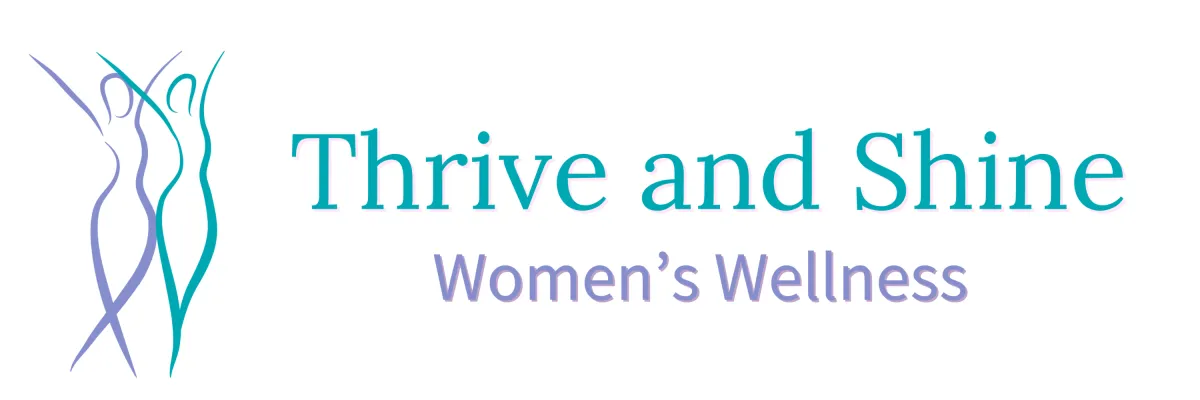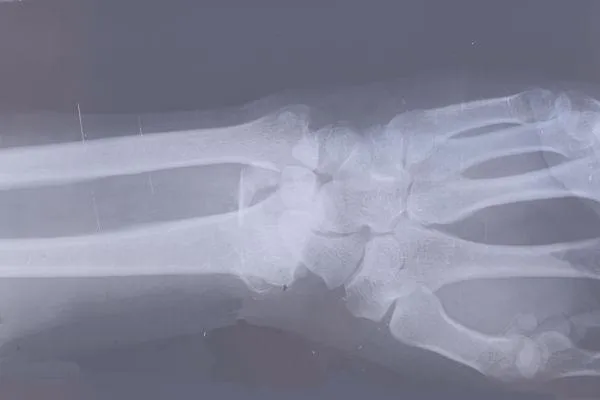


BLOG
Step into Your Power. Learn, Transform, Thrive in Life Transitions. Embrace Your Best Self.

What Can Women Do to Maintain Healthy Bones Throughout Life?
What Can Women Do to Maintain Healthy Bones Throughout Life?
As women, our bones play a crucial role in our overall health and well-being, providing structure, protecting our organs, anchoring muscles, and storing essential minerals like calcium. However, as we age, particularly after the age of 30, our bones start to lose density, which can increase the risk of conditions like osteoporosis—a condition that weakens bones and makes them more prone to fractures. In this blog, I’ll share some practical tips on how to maintain strong, healthy bones throughout your life, with a focus on preventing and managing osteoporosis.

Understanding Bone Health:
Our bones are constantly breaking down and rebuilding. When we’re young, we build bone faster than we break it down, which helps us increase our bone mass. Peak bone mass is typically reached in our early 30s. After that, the balance shifts, and bone breakdown can outpace bone formation, leading to a gradual loss of bone density.
For women, bone health becomes especially crucial as we approach menopause. The drop in oestrogen levels during menopause can accelerate bone loss, increasing the risk of osteoporosis. However, bone health is not just something to think about during menopause—it’s important to focus on it throughout all stages of life.
Factors Affecting Bone Health in Women:
There are several factors that can influence bone health, particularly for women:
Hormonal Changes: A drop in oestrogen during menopause is a significant factor in bone loss.
Genetics: If osteoporosis runs in your family, you may be at higher risk.
Nutrition: Poor nutrition, particularly a lack of calcium and vitamin D, can weaken bones.
Sedentary Lifestyle: A lack of physical activity can speed up bone loss.
Medical Conditions: Conditions that affect nutrient absorption, such as coeliac disease or inflammatory bowel disease, can impair bone health.
Medications: Long-term use of corticosteroids and some other medications can increase the risk of osteoporosis.
Lifestyle Choices: Smoking, excessive alcohol consumption, and certain dietary habits can negatively impact bone health.
Symptoms of Osteoporosis:
Osteoporosis often develops silently, without any symptoms, until a bone fracture occurs. Common fractures related to osteoporosis include those of the wrist, hip, and spine. Signs that may suggest osteoporosis include:
Bone Fractures: Particularly in the wrist, hips, and spine.
Wedge Fractures of the Spine: These can lead to:
Loss of height
Back pain
A hunched posture

Keeping Your Bones Healthy:
While osteoporosis is a significant concern, there are plenty of steps you can take throughout your life to maintain strong bones and reduce your risk of bone-related issues. Here are some key strategies for supporting bone health:
Nutrition:
Calcium: Make sure you’re getting enough calcium, which is essential for bone health. Good sources include dairy products, dark green leafy vegetables, tinned fish with bones, and cereals fortified with calcium.
Vitamin D: This is vital for calcium absorption. You can get vitamin D from sunlight, as well as from foods like salmon, cod liver oil, and fortified cereals. In some cases, especially in the UK where sunlight can be limited, a supplement might be necessary.
Magnesium: Magnesium supports bone formation and can be found in nuts, seeds, whole grains, and leafy greens.
Exercise:
Weight-Bearing Exercise: Activities like walking, jogging, and dancing are excellent for maintaining bone density. These exercises make you work against gravity, which strengthens your bones.
Resistance Training: Incorporating resistance exercises, such as weight lifting, using resistance bands, or bodyweight exercises like Pilates, can help strengthen your muscles and bones.
Balance and Flexibility Exercises: Practices like tai chi and yoga can improve balance, helping to reduce the risk of falls and fractures.
Lifestyle Choices:
Avoid Smoking: Smoking has been shown to accelerate bone loss and increase the risk of fractures.
Limit Alcohol Intake: Excessive alcohol can interfere with your body’s ability to absorb calcium, weakening your bones.
Maintain a Healthy Weight: Being underweight can increase the risk of bone loss and fractures, so aim for a balanced diet and a healthy body weight.
Bone Health Monitoring:
If your GP has put you at high risk for osteoporosis, they may recommend a bone density test to monitor your bone health and detect osteoporosis early.
Overcoming Barriers to Exercise:
If you have barriers to exercising, such as pain, pelvic health issues, or menopause symptoms, a women’s health physiotherapist can help. They can prescribe specific exercises and offer tailored advice to help you maintain or improve your bone health.
Conclusion:
Maintaining bone health is about more than just preventing osteoporosis; it’s about staying active and strong throughout your life. Regular exercise not only helps build and maintain bone density but also plays a critical role in improving balance and flexibility, which can significantly reduce the risk of falls and fractures.
If you’re facing barriers to exercising, such as pain, pelvic health concerns, or menopause-related symptoms, I encourage you to reach out. As a women’s health physiotherapist, I can work with you to develop a personalised plan that addresses your specific needs and helps you overcome these challenges.
By focusing on nutrition, exercise, and making healthy lifestyle choices, you can keep your bones strong and your body resilient, ensuring you remain active and healthy for years to come.
Ready to overcome your barriers to exercise and improve your bone health? Book a consultation with me today to start building a stronger, healthier future.

Sign up for our newsletter.
BLOG
Step into Your Power.
Learn, Transform, Thrive in Life Transitions.
Embrace Your Best Self.

What Can Women Do to Maintain Healthy Bones Throughout Life?
What Can Women Do to Maintain Healthy Bones Throughout Life?
As women, our bones play a crucial role in our overall health and well-being, providing structure, protecting our organs, anchoring muscles, and storing essential minerals like calcium. However, as we age, particularly after the age of 30, our bones start to lose density, which can increase the risk of conditions like osteoporosis—a condition that weakens bones and makes them more prone to fractures. In this blog, I’ll share some practical tips on how to maintain strong, healthy bones throughout your life, with a focus on preventing and managing osteoporosis.

Understanding Bone Health:
Our bones are constantly breaking down and rebuilding. When we’re young, we build bone faster than we break it down, which helps us increase our bone mass. Peak bone mass is typically reached in our early 30s. After that, the balance shifts, and bone breakdown can outpace bone formation, leading to a gradual loss of bone density.
For women, bone health becomes especially crucial as we approach menopause. The drop in oestrogen levels during menopause can accelerate bone loss, increasing the risk of osteoporosis. However, bone health is not just something to think about during menopause—it’s important to focus on it throughout all stages of life.
Factors Affecting Bone Health in Women:
There are several factors that can influence bone health, particularly for women:
Hormonal Changes: A drop in oestrogen during menopause is a significant factor in bone loss.
Genetics: If osteoporosis runs in your family, you may be at higher risk.
Nutrition: Poor nutrition, particularly a lack of calcium and vitamin D, can weaken bones.
Sedentary Lifestyle: A lack of physical activity can speed up bone loss.
Medical Conditions: Conditions that affect nutrient absorption, such as coeliac disease or inflammatory bowel disease, can impair bone health.
Medications: Long-term use of corticosteroids and some other medications can increase the risk of osteoporosis.
Lifestyle Choices: Smoking, excessive alcohol consumption, and certain dietary habits can negatively impact bone health.
Symptoms of Osteoporosis:
Osteoporosis often develops silently, without any symptoms, until a bone fracture occurs. Common fractures related to osteoporosis include those of the wrist, hip, and spine. Signs that may suggest osteoporosis include:
Bone Fractures: Particularly in the wrist, hips, and spine.
Wedge Fractures of the Spine: These can lead to:
Loss of height
Back pain
A hunched posture

Keeping Your Bones Healthy:
While osteoporosis is a significant concern, there are plenty of steps you can take throughout your life to maintain strong bones and reduce your risk of bone-related issues. Here are some key strategies for supporting bone health:
Nutrition:
Calcium: Make sure you’re getting enough calcium, which is essential for bone health. Good sources include dairy products, dark green leafy vegetables, tinned fish with bones, and cereals fortified with calcium.
Vitamin D: This is vital for calcium absorption. You can get vitamin D from sunlight, as well as from foods like salmon, cod liver oil, and fortified cereals. In some cases, especially in the UK where sunlight can be limited, a supplement might be necessary.
Magnesium: Magnesium supports bone formation and can be found in nuts, seeds, whole grains, and leafy greens.
Exercise:
Weight-Bearing Exercise: Activities like walking, jogging, and dancing are excellent for maintaining bone density. These exercises make you work against gravity, which strengthens your bones.
Resistance Training: Incorporating resistance exercises, such as weight lifting, using resistance bands, or bodyweight exercises like Pilates, can help strengthen your muscles and bones.
Balance and Flexibility Exercises: Practices like tai chi and yoga can improve balance, helping to reduce the risk of falls and fractures.
Lifestyle Choices:
Avoid Smoking: Smoking has been shown to accelerate bone loss and increase the risk of fractures.
Limit Alcohol Intake: Excessive alcohol can interfere with your body’s ability to absorb calcium, weakening your bones.
Maintain a Healthy Weight: Being underweight can increase the risk of bone loss and fractures, so aim for a balanced diet and a healthy body weight.
Bone Health Monitoring:
If your GP has put you at high risk for osteoporosis, they may recommend a bone density test to monitor your bone health and detect osteoporosis early.
Overcoming Barriers to Exercise:
If you have barriers to exercising, such as pain, pelvic health issues, or menopause symptoms, a women’s health physiotherapist can help. They can prescribe specific exercises and offer tailored advice to help you maintain or improve your bone health.
Conclusion:
Maintaining bone health is about more than just preventing osteoporosis; it’s about staying active and strong throughout your life. Regular exercise not only helps build and maintain bone density but also plays a critical role in improving balance and flexibility, which can significantly reduce the risk of falls and fractures.
If you’re facing barriers to exercising, such as pain, pelvic health concerns, or menopause-related symptoms, I encourage you to reach out. As a women’s health physiotherapist, I can work with you to develop a personalised plan that addresses your specific needs and helps you overcome these challenges.
By focusing on nutrition, exercise, and making healthy lifestyle choices, you can keep your bones strong and your body resilient, ensuring you remain active and healthy for years to come.
Ready to overcome your barriers to exercise and improve your bone health? Book a consultation with me today to start building a stronger, healthier future.

Sign up for our newsletter.



